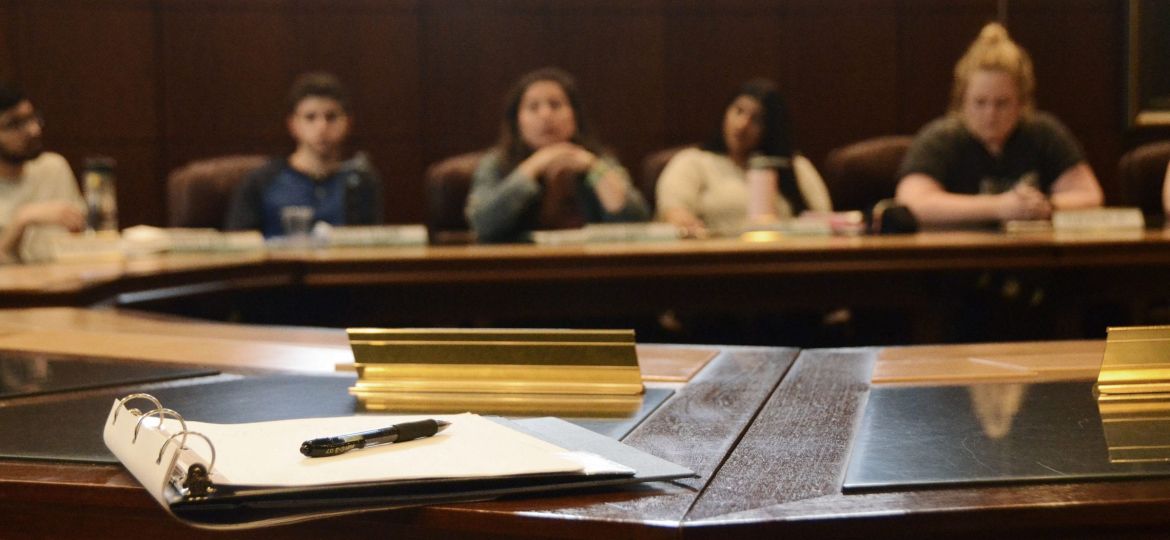
Over the past year, St. Olaf has been considering outsourcing operations of Boe House Counseling Center to a third-party organization, a possibility that has provoked concern among many students worried about accessibility. In response to these worries as well as criticisms of current mental health services on campus, the Student Government Association (SGA) Senate recently approved a resolution that “aggregates student concerns regarding mental healthcare services and calls for concrete changes in policy.”
The proposed policy changes center around five main goals: increasing the number of counselors from underrepresented groups, increasing overall accessibility, preventing any economic and privacy barriers from arising, improving the mental health training of Public Safety officers and increasing faculty and staff awareness and accommodation of student mental health issues.
“The top priority is hiring more counselors of color and queer-identifying counselors because this has been noted a lot, and we wanted to call for that both for within the permanent counseling staff and within the yearly interns, too,” SGA Vice President Tim Bergeland ’18 said.
The resolution also calls for an across-the-board hiring increase of counselors, noting that student usage of the Counseling Center has increased steadily over time while the number of counselors has remained fairly stable. The resolution argues that this disparity has led to longer wait times for appointments.
Bergeland also noted the high priority the Senate places on preventing any economic and privacy barriers from emerging. The resolution calls for the Strategic Resource Allocation Plan (SRAP) committees to reject outsourcing proposals that would require students to have health insurance, arguing that such an arrangement would create “economic barriers for students that cannot afford the St. Olaf insurance plan, such as most international students.”
Criticisms of outsourcing Boe House are not only from students. Recently, Maria Coyne ’15 started a petition on change.org titled “SAVE BOE HOUSE: Petition to maintain in-house counseling services at St. Olaf College.” The petition makes similar arguments to those of the Senate resolution, contending that outsourcing would mean that “students will be financially penalized for being uninsured, underinsured, or insured by high-deductible health plans,” and “students on their parents’ health plan will lose privacy when seeking services.” The petition had garnered 1,014 signatures as of May 1.
According to Janet Hanson, Vice President and Chief Financial Officer, these fears about an insurance-based system are unlikely to be realized. Hanson told students at the February 20 Greater Than Town Hall that Allina Health has agreed to waive the requirement that treatment require a diagnosis, and said there will still be counseling services circumventing any insurance-based system. She also said the administration has not yet decided whether student insurance will be utilized at all.
“At this point, we’re still weighing a variety of options for how to enhance counseling services on campus. We have not committed to Allina or any other external resource provider, and a decision is not imminent,” Hanson said.
The proposals surrounding accessibility also call for subsidizing medications prescribed by the Boe House psychiatrist, “continuing St. Olaf’s legacy of mental healthcare that is unconditional, unlimited and free of charge,” and creating a fund that “specifically assists students who struggle to pay for needed additional services that extend beyond the capacity of Boe House.”
The resolution calls for annual comprehensive mental health and crisis intervention training for Public Safety officers, a proposal spurred by a number of complaints alleging inadequate competency of officers in these areas. The document supplements this proposal with calls for “hiring an on-call mental health specialist to accompany Public Safety on crisis calls,” easier reporting of improper behavior by officers, increased transparency regarding how complaints are handled and stronger guarantees that the Safe Ride program extends to “students struggling with mental health concerns.”
The document’s final set of proposals address the goal of increasing faculty and staff awareness and accommodation of student mental health issues. The resolution calls for the Faculty Governance Committee to create a “revised syllabus statement that conveys a proactiveness for accommodating neurodiversity and varied mental health situations.” The document further requests “sustained mental health training for faculty and staff,” increased resources to accommodate students with mental health issues and a clear system “by which students can report professors they don’t believe are adequately responding to their mental health needs.”
According to Hanson the administration is already taking steps to address some of the concerns raised in the resolution. The Faculty Governance Committee plans to discuss the document’s proposal for creating a revised syllabus statement at a meeting this week. Hanson also noted there are steps being taken to provide Public Safety officers with additional mental health training.
“We are considering all of the things that the SGA resolution mentions, including the other administrative services on campus that support counseling functions,” Hanson said. “I reached out to the SGA members who drafted the resolution, and we are making arrangements to meet this week to sit down and discuss the concerns they have outlined in their resolution.”
carlen1@stolaf.edu

